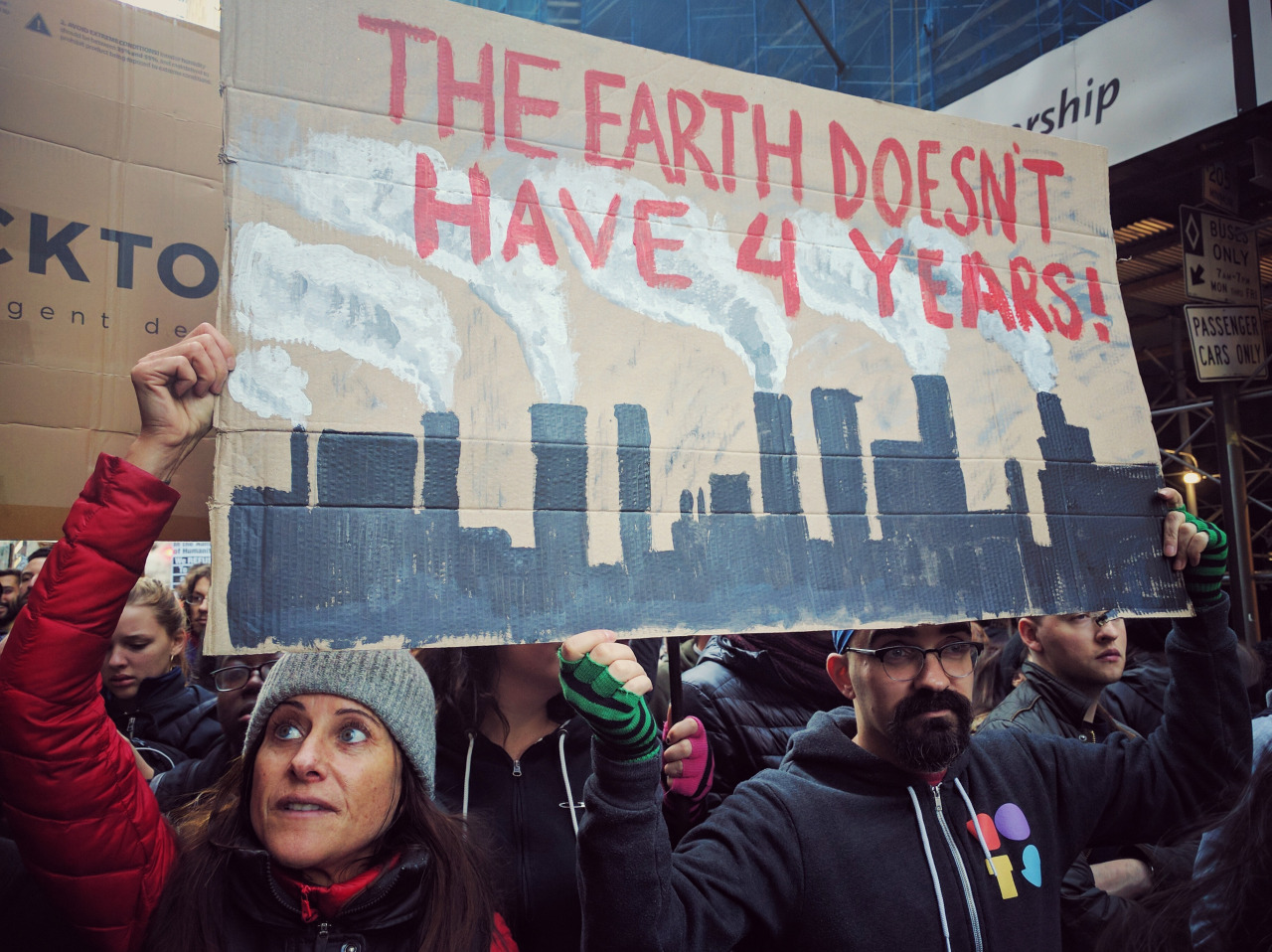Region: International
Thinking Globally, Acting Transnationally
Despite Trump, Americans are joining the international fight against climate change.
The U.S. government obviously isn’t going to be taking a global leadership role regarding climate change, not for the next four years. At one time, that would have been the end of the story: the only way to accomplish anything internationally was through national governments. But we live in a different world today and there …
Continue reading “Thinking Globally, Acting Transnationally”
CONTINUE READINGA Lame Soundbite From a Flailing Administration
Pruitt’s statement yesterday exemplifies why the Trump Administration is in trouble.
Everything that’s wrong with the Trump Administration was on display yesterday, thanks to Scott Pruitt. He told “Fox and Friends” that the U.S. should get out of the Paris Agreement because China and India have no obligations until 2030. The fact that he made this comment, and made it on Fox, vividly exemplifies many of the Administration’s …
Continue reading “A Lame Soundbite From a Flailing Administration”
CONTINUE READINGThis Wolf Came as Dressed as a Wolf
Trump’s views on energy & environment were clear before the election. He’s doing what he said.
In terms of energy and environmental issues, Trump has turned out to be as advertised. Last June, I did a post contrasting Clinton and Trump’s views about the environment. Below, I revisit the June post in order to compare what Trump said before Election Day and what he’s done since. In case you’ve forgotten, Clinton’s position …
Continue reading “This Wolf Came as Dressed as a Wolf”
CONTINUE READINGIf Trump Guts Key Programs, Does Staying in Paris Even Matter?
Administration to Issue Executive Order to Pull the Clean Power Plan
(This post is cross-listed at takecareblog.com) Today the Trump Administration is expected – via Executive Order – to announce that it will begin the process to rescind the Clean Power Plan. The Order apparently says nothing about whether the U.S. will remain in the Paris Agreement. For months, speculation about whether the U.S. will withdraw …
Continue reading “If Trump Guts Key Programs, Does Staying in Paris Even Matter?”
CONTINUE READING2050: The Challenges Ahead
How will we cope with a huge population increase and climate change?
Let’s look past today’s political travails and think longer-range. What will things look like in 2050? There are more details below, but here’s the general picture. World population will probably grow by 2.5 billion people between now and 2050, with about half of the increase in Africa. Given historically weak economic growth in those areas …
Continue reading “2050: The Challenges Ahead”
CONTINUE READINGTrump’s Environmental Assault Begins
Clean Power Plan, Waters of the U.S. Rules First on the Chopping Block But What Remains in Place Varies Dramatically
The Washington Post is reporting that the Trump Administration will very shortly roll out two executive orders to curtail environmental protection. These rollbacks follow on the heels of the Senate’s confirmation of Scott Pruitt, who has made no secret of his antipathy for federal environmental regulations. The first executive order, as widely expected, will tell the …
Continue reading “Trump’s Environmental Assault Begins”
CONTINUE READINGEarth Day, 2017 Should Be The Next Massive Rally
The 47th Earth Day falls this year on April 22, a Saturday. The fortuity of a weekend date makes Earth Day the perfect opportunity to marshall the energy of the wildly successful Women’s marches around the world to demand that Congress and the Trump Administration protect our planet (hat tip to Emmett Fellow Julia Forgie …
Continue reading “Earth Day, 2017 Should Be The Next Massive Rally”
CONTINUE READINGGuest Blogger David Spence: Another Take on the Tillerson Nomination
Hearings on the nomination of ExxonMobil CEO Rex Tillerson to be President-elect Donald Trump’s Secretary of State are scheduled to begin on January 11th. The nomination puts Tillerson and his company at the vortex of a whirlwind of public grievances about ExxonMobil’s positions on climate science and Russian influence over American politics and policy. While …
Continue reading “Guest Blogger David Spence: Another Take on the Tillerson Nomination”
CONTINUE READING2016: The Good, the Bad, and the Ugly
“But except for that, how did you like the play, Mrs. Lincoln?” It’s an old joke, for all I know going back to 1865. That was 2016,too, in a way. Like Mrs. Lincoln’s evening at Ford’s Theater, 2016 contained a lot of good things, some bad things, and then disaster. Here’s a list of each. The …
Continue reading “2016: The Good, the Bad, and the Ugly”
CONTINUE READINGGOP Mayor: “Let’s Talk About the Octopus in the Room”
An octopus in a parking garage? It’s a sign of the times.
Jim Cason, the GOP mayor of Coral Gables, Florida, wants us to talk about climate change: “‘We’re looking to a future where we’re going to be underwater, a great portion of South Florida,’” Cason said. ‘For all of us down here, this is really not a partisan issue. We see it. We see the octopus in …
Continue reading “GOP Mayor: “Let’s Talk About the Octopus in the Room””
CONTINUE READING











